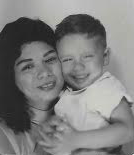In a July 27 column in Baptist Press, Al Mohler, president of Southern Baptist Theological Seminary (my alma mater) insists that couples who choose childlessness are guilty of “rebellion against parenthood [that] represents nothing less than an absolute revolt against God’s design.”
He bases his assertion on Psalm 127: 3-5 which reads: “Children are a heritage of the Lord, the fruit of the womb a reward. As arrows in a soldier’s hand, so are the sons of the young. Blessed is the man who has filled his quiver with them.”
Mohler advocates a “full-quiver” theology, which in some forms disapproves of all forms of contraception. Only God can decide when to “open or close the womb.” For mere mortals to practice birth control is to supersede the role of divinity. If children are the sign of blessing, then the best that humans can do is have as many children as possible, so that a man’s quiver can truly be full.
As disturbing as “full-quiver” theology may be, even more distressing is Mohler’s socio-political reasons for his belief. In an interview he gave to The Chicago Tribune, Mohler explained that rather than being concerned with overpopulation, he was more troubled with under-population.
“We are barely replenishing ourselves,” he said. “That is going to cause huge social problems in the future.”
According to the U.S. Census Bureau, International Data Base (2005 version) the world population, which was at a little over 6 billion in 2000, is expected to grow to 7 billion by 2013 and to surpass 9 billion by 2050.
The U.S. population is also growing, from about 280 million in 2000, to a projected 310 million in 2010, to a little under 400 million by 2040.
If these scientifically projected increases are reliable, then we must ask: Why is Mohler concerned about under-population? Under-population for whom? In other words, who is the “we” that is barely replenishing itself?
The projections concerning U.S. population growth also show that if present trends continue Euro-Americans will cease being the majority race in the United States by about 2050. The combined population growth of communities of color over the next half century will make America a predominately non-white nation.
Hence, the religious call for “full-quiver” theology is white-supremacy code language advocating for the increase of white babies.
Mohler’s call, whether he realizes it or not, is a race-based warning. It is a call for white fecundity, lest America becomes overrun with “colored” children, which would only lead, as Mohler puts it, to “huge social problems in the future.”
Regardless of the racist overtures of Mohler’s call for productive white sex, children, regardless of their color or ethnicity, can indeed be a joyous product of sex. Still, we cannot lose sight that the ultimate goal of sex is fulfillment, not having children.
And while reproduction is neither the reason nor purpose for engaging in sex, it does seem fitting that new life can be a product of two becoming one. How right are the words of the Psalmist when he or she sings, “Children are a heritage of the Lord, the fruit of the womb a reward.”
Indeed, as a father of two children myself, I can unequivocally claim that my children are among the greatest blessings of my life. Like Brother Al, who also has just two children, we are not in “moral rebellion” against God. But if Mohler insists on imposing a “full quiver,” then I suggest he either lead by example or remain quiet.
Still, what about children being God’s blessing? It is the height of biblical naiveté to impose modern concepts upon ancient texts. Viewing children as blessing for their own sake is a relatively modern concept.
While the Old Testament declares children are a blessing from the Lord, this blessing was primarily economic. Biblically speaking, children were an asset. Along with women, they were a man’s property.
If a marriage failed to produce children, a man had the right to put away his wife and choose another. This was in hope that the new woman would produce offspring, and preferably boys.
In an agricultural society, the presence of children literally meant extra hands to work the field. It also provided the parent with a form of Social Security for the future. Children were necessary to ensure financial support in old age. The more children a man fathered, the more financially secure he became.
In modern times, society has turned toward urbanization. Advances in medicine have contributed to longer lives. Population growth has strained resources, and technology reduced the number of people needed to work the soil. As a result, large families have become less the norm.
A disturbing story in the book of Job illustrates how children were viewed as property. Today it offends our moral sensitivities, but it made perfect moral sense during biblical times.
We are told that all of Job’s children–seven sons and three daughters–were killed by Satan on God’s authority. This is but one of many calamities to befall Job, but no doubt among the most painful. By the end of the book, God restores all of Job’s riches and properties, including his children. He fathers seven new sons and two new daughters, replacing those whom he lost earlier in the story.
In a world where children are seen as property, then the siring of new children to replace the old dead ones seemed fair–kind of like the 14,000 sheep, 6,000 camels, 1,000 oxen and 1,000 she-donkeys which replaced the livestock destroyed earlier in the story.
But if children are a product of love, a quite modern concept, then no amount of additional children can ever make up for loss of a particular child or children.
Jesus changes the status of children by making them the ideal by which entrance into God’s reign can occur (Mt 18:3-4).
No longer is the model one male person benefiting from the power and privilege of being the patriarchal head. Instead, seeking the position of the least among us, the child, becomes the means toward salvation.
Children’s identity ceases to be property, and instead becomes a product of love.
Jesus returns children (as well as women) to their status as human beings, instead of as property within a patriarchal society.
First Published in Ethics Daily



